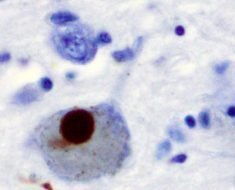Cancer symptoms: Top 14 early signs to look out for
We use your sign-up to provide content in ways you’ve consented to and to improve our understanding of you. This may include adverts from us and 3rd parties based on our understanding. You can unsubscribe at any time. More info
Every now and then, research flies in the face of common wisdom. A study published in the journal Cancer Prevention Research has this disorientating effect. The controversial finding associates egg consumption with a significantly higher risk of “lethal” prostate cancer. The findings were summarised in an article by the Osher Center for Integrative Health at the University of California, San Francisco.
“According to a prospective study published in Cancer Prevention Research, healthy men who consumed 2.5 or more eggs per week had an 81 percent increased risk of lethal prostate cancer compared with men who consumed less than 0.5 eggs per week,” the health body wrote.
“The authors hypothesised that this was due to a high level of cholesterol and choline in the eggs, which are both highly concentrated in prostate cancer cells.”
The authors of the study concluded that “consumption of eggs may increase risk of developing a lethal form of prostate cancer among healthy men”.
In 2012, the authors of the original study looked specifically at choline content and found that men in the highest quintile of choline intake (471 mg/day) had a 70 percent increased risk of lethal prostate cancer.

Although choline is a nutrient found in all animal foods, it is more highly concentrated in eggs at 250 mg per egg.
It must be emphasised that causation was not established. The research only found an association between egg consumption and cancer incidence.
Nonetheless, other studies have found such an association. A meta-analysis published in 2015 showed a modestly elevated risk for not only prostate cancer but also breast and ovarian cancers for those with the highest intake of eggs – more than five per week – as compared to those with no egg consumption at all.
Insufficient evidence
It’s important to note that other credible health bodies refute the link between egg consumption and cancer risk.
DON’T MISS
Non-alcoholic drink risks blood clot formation within ‘1 hour’ [ADVICE]
High blood pressure: ‘Avoid’ one common ingredient [TIPS]
Cancer: Two supplements found to increase your risk [INSIGHT]
Cancer Research UK is unequivocal: “No, eating eggs does not cause cancer.”
The charity continues: “Studies have looked at the relationship between eggs and different types of cancer, but there is no good evidence that eggs affect cancer risk.
What’s more, “eggs can provide a source of protein as part of a healthy balanced diet”, it notes.
Warnings have been issued about the cholesterol content of eggs but health bodies are quick to allay these fears.

“The evidence that cholesterol in one egg a day is safe for most people comes from huge studies – many conducted here at Harvard Medical School – that have followed hundreds of thousands of people over decades,” says Harvard Health.
The health body continues: “They regularly report what they eat and all of the medical conditions that they develop.
“It is those studies that do not find higher rates of heart attacks, strokes, or other cardiovascular diseases in people who eat up to one egg per day.”
Of course, it matters greatly what you eat with your eggs.

“The saturated fat in butter, cheese, bacon, sausage, muffins, or scones, for example, raises your blood cholesterol much more than the cholesterol in your egg,” warns Harvard Health.
The health body adds: “And the highly refined ‘bad carbs’ in white toast, pastries, home fries, and hash browns may also increase your risk of heart disease, stroke, and other cardiovascular diseases.”
General tips to reduce risk of cancer
Having healthy food and drink can reduce your risk of cancer.
“Aim to have plenty of fruit and vegetables, wholegrain foods high in fibre and healthy proteins,” advises Cancer Research UK.
The charity adds: “Cut down on processed and red meat, alcohol and high calorie foods and drinks.”
Source: Read Full Article





